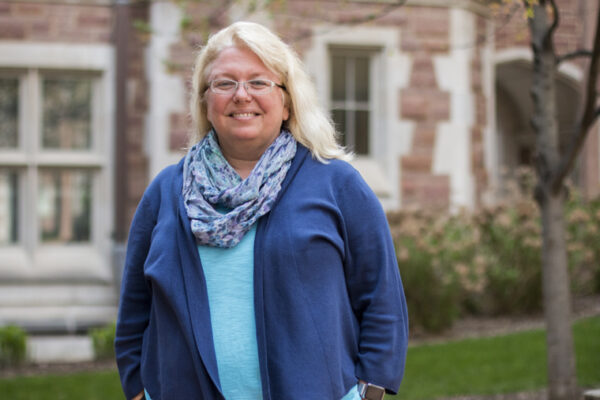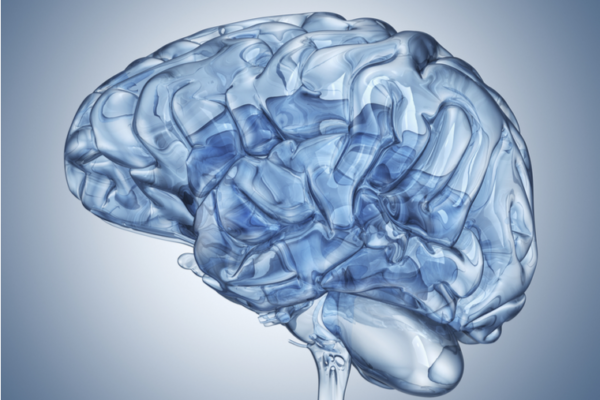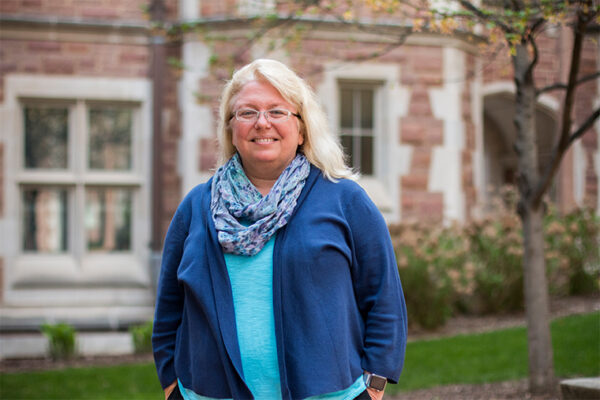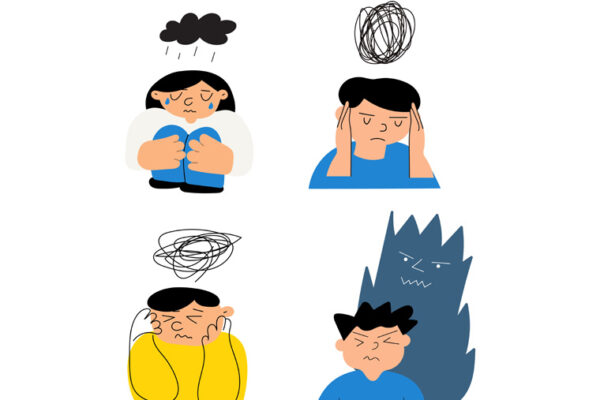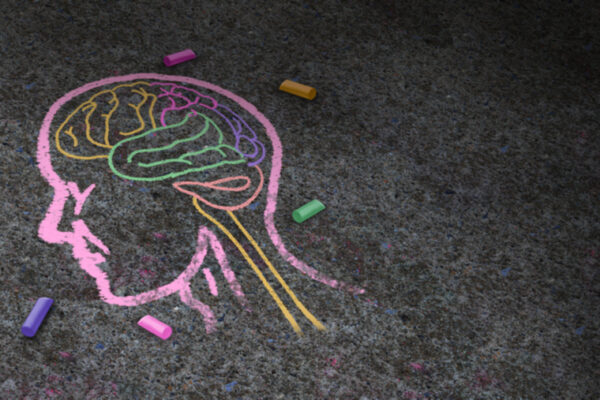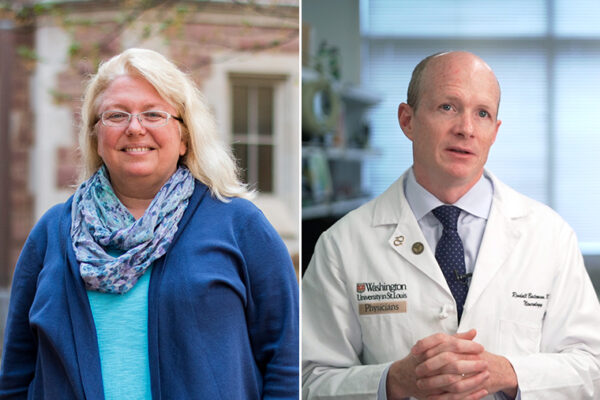Barch studies cognitive and language deficits in disorders such as schizophrenia, and the neurobiological mechanisms that contribute to such deficits. Her research includes behavioral, pharmacological, and neuroimaging studies with normal and clinical populations. One line of research examines discourse-level components of language production in terms of working memory function (in normal populations) and dysfunction (in schizophrenia), and the mediating role of prefrontal cortex and modulatory neurotransmitters (e.g., dopamine).

Deanna Barch
Professor of Psychology; Professor of Radiology
Contact Information
- Phone: 314-935-8729
- Email: dbarch@wustl.edu
- Website: Website
Media Contact
In the media
A Rise in Suicides by Young Children Leaves Families Searching for Answers
Joan Luby, the Samuel and Mae S. Ludwig Professor of Child Psychiatry; and professor of psychological & brain sciences
Wash U Professor Says Young Children Think About Suicide, Too
Deanna Barch, professor of psychological and brain sciences
Study: Family Factors Are Tied to Suicide Thoughts and Attempts in Children
Deanna Barch, professor of psychological and brain sciences
Scholars highlight impact of early adversity on developing brain, implications for criminal justice
Susan Appleton, the Lemma Barkeloo & Phoebe Couzins Professor of Law; and Deanna Barch, professor of psychological and brain Sciences
Stories
Barch receives Research Investigator Prize
The American Psychological Foundation has awarded its Alexander Gralnick Research Investigator Prize to Deanna Barch, professor in Arts & Sciences and at the School of Medicine.
OHMB recognizes Barch with Glass Brain Award
The Organization for Human Brain Mapping has awarded its Glass Brain Award to Deanna Barch, of Arts & Sciences and the School of Medicine, in recognition of her influential work on the function of the human brain.
Barch recognized for achievement, excellence
The Society for Research in Psychopathology has awarded its Joseph Zubin Lifetime Achievement Award to WashU’s Deanna Barch in recognition of her lifetime contributions to the understanding of the field.
NIH funds Barch research on neurodevelopment
WashU’s Deana Barch will use a $753,181 grant from the National Institutes of Health (NIH) to better understand healthy neurodevelopment.
Persistent, distressing psychotic-like experiences associated with impairment in youth
Research from the lab of Deanna Barch shows that youth who indicate they have persistent, distressing psychotic-like episodes show impairment in a variety of areas.
17-year study of children associates poverty with smaller, slower-growing subcortical regions
Research from the lab of Deanna Barch shows a lasting relationship between childhood poverty, brain development.
Barch, Bateman elected to National Academy of Medicine
Deanna M. Barch, chair of psychological and brain sciences in Arts & Sciences and the Gregory B. Couch Professor of Psychiatry at the School of Medicine, and Randall J. Bateman, MD, professor of neurology at the School of Medicine and director of the Dominantly Inherited Alzheimer’s Network and Trials Unit, have been elected to the National Academy of Medicine.
Female faculty in psychological sciences survey present, chart future
Washington University’s Deanna Barch was among 59 women psychologists working in academia who took an empirical approach to understanding gender inequities in their field. They find some promising data, but also much work to be done.
Suicidal thoughts in 9- and 10-year-olds correlate to family dynamics
Research from Washington University in St. Louis shows a nontrivial rate of children as young as 9 and 10 years old are thinking about suicide. How their families interact — or don’t — may play a role.
How team sports change a child’s brain
Adult depression has long been associated with shrinkage of the hippocampus, a brain region that plays an important role in memory and response to stress. Now, new research from Washington University in St. Louis has linked participation in team sports to larger hippocampal volumes in children and less depression in boys ages 9 to 11.
Barch, Ley, Boime to be honored
Deanna Barch, a leading researcher on the role of cognition, emotion and brain function in illnesses such as schizophrenia and depression; Irving Boime, a developmental biologist; and Timothy Ley, MD, an expert in cancer genomics and leukemia, will be honored by Washington University in St. Louis, Chancellor Mark S. Wrighton has announced.
Research offers clues for dealing with anxiety, childhood depression, schizophrenia
Research is shedding new light on what happens in the brains of children and adults affected by clinical depression, anxiety disorders and schizophrenia, according to Washington University in St. Louis studies presented at a recent mental health symposium. The findings, which come as America celebrates Mental Health Awareness Month, point to new treatment options for preschool-aged children with significant clinical depression and for severely depressed adults who don’t respond to standard treatments, such as antidepressants and psychotherapy.
Barch named new director of Conte Center
BarchThe Silvio Conte Center for Neuroscience Research at Washington University has a new director. Deanna Barch, associate professor of psychology in Arts & Sciences, of psychiatry and of radiology, takes over leadership of the center from John Csernansky, the former Gregory B. Couch Professor of Psychiatry, who has become the chairman of psychiatry at Northwestern University.
Memory study shows brain function in schizophrenia can improve
Deanna Barch (center) discusses brain imaging techniques used in the experiment, which used the functional magnetic resonance imaging (fMRI) machine (shown at right).When encouraged to use memorization strategies commonly employed by healthy individuals, people with schizophrenia can be helped to remember information just as well as their healthy counterparts, a process that in itself seems to spur a normalization of memory-related activities in the brains of people with schizophrenia, suggests new research from Washington University in St. Louis.
Memory study shows brain function in schizophrenia can improve with support, holds promise for cognitive rehabilitation
Deanna Barch (right), co-author of a memory study that used a functional magnetic resonance imaging machine (shown in the background) to monitor the brain activity of people with schizophrenia.When encouraged to use memorization strategies commonly employed by healthy individuals, people with schizophrenia can be helped to remember information just as well as their healthy counterparts, a process that in itself seems to spur a normalization of memory-related activities in the brains of people with schizophrenia, suggests new research from Washington University in St. Louis.
Crippling anxiety disorders often helped by behavorial therapy
A psychologist at Washington University in St. Louis says that people who suffer from social anxiety disorders can receive help through cognitive behavior therapy.Citing statistics that show that many people fear public speaking more than death, comedian Jerry Seinfeld once joked that if you’re at a funeral, you’re better off in the casket than doing the eulogy. But for people who suffer from social anxiety disorders, one of which is public speaking, it’s no laughing matter. These people’s personal lives and careers can be sidelined by fear of certain social situations, such as speaking with a boss or authority figure, making telephone calls or attending parties. The good news is that these disorders are highly treatable through cognitive behavior therapy, in particular, group therapy, according to a psychologist at Washington University in St. Louis.
